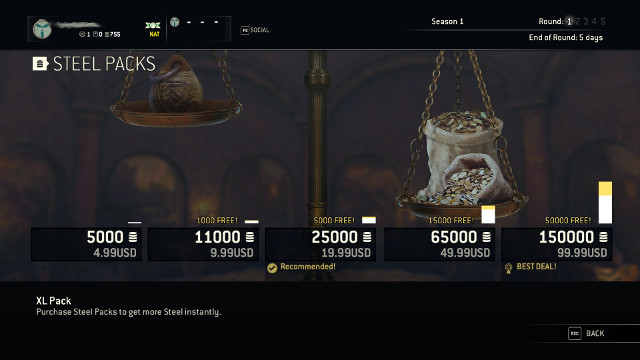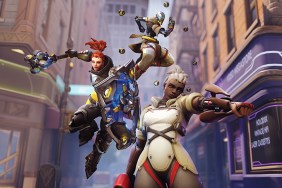After a Redditor recently made headlines for calculating the cost of all unlockables in For Honor and coming up with a figure more than $700, or an in-game currency amount that would take a casual player more than 2 years to unlock, it certainly put the For Honor team at Ubisoft on the defensive.
With the ball in their court, Ubisoft couldn't escape their Warrior's Den Weekly For Honor live stream on Twitch without answering questions about their microtransaction model.
"For Honor wasn't designed to unlock all content for all the heroes," Game Director Damien Kieken said. "We don't expect a player to buy everything. We just expect them to buy the content for the hero or heroes they want."
Doubling down, Kieken also announced that they will be adding even more content, including gear that will be purchasable with Steel, For Honor's in-game currency that you can also purchase at a premium.
Kieken does have a point, especially since you won't be able to use everything you can unlock from each hero at the same time, and you probably want to play one hero in one play style. Still, though, what we're left with isn't very consumer-friendly. Kieken, himself, noted that they expect a player to need to play 1-2 hours a day for about a week to purchase a higher-end piece of gear.
Plus, the Redditor who made this post, bystander007, had already addressed this issue, noting that this content is not part of a DLC pack.
"To everyone, and I mean f***ing everyone, who comments "Do you really need all unlocks?" My answer is a big fat resounding f***ing YES. Why? Because I f***ing paid for them. It's base game content in a full price game I paid for. I should be able to get every single unlock I conceivably want to unlock," wrote bystander007.
Plus, this doesn't even take into account that these microtransactions actually have a tangible effect on the gameplay, making it pay-to-win. If there was no gameplay effect, and these were just cosmetic bonuses, there would be no issue.
It's not quite the "DLC shitstorm," that was Evolve, but it's certainly the closest thing 2017 has to compare.







